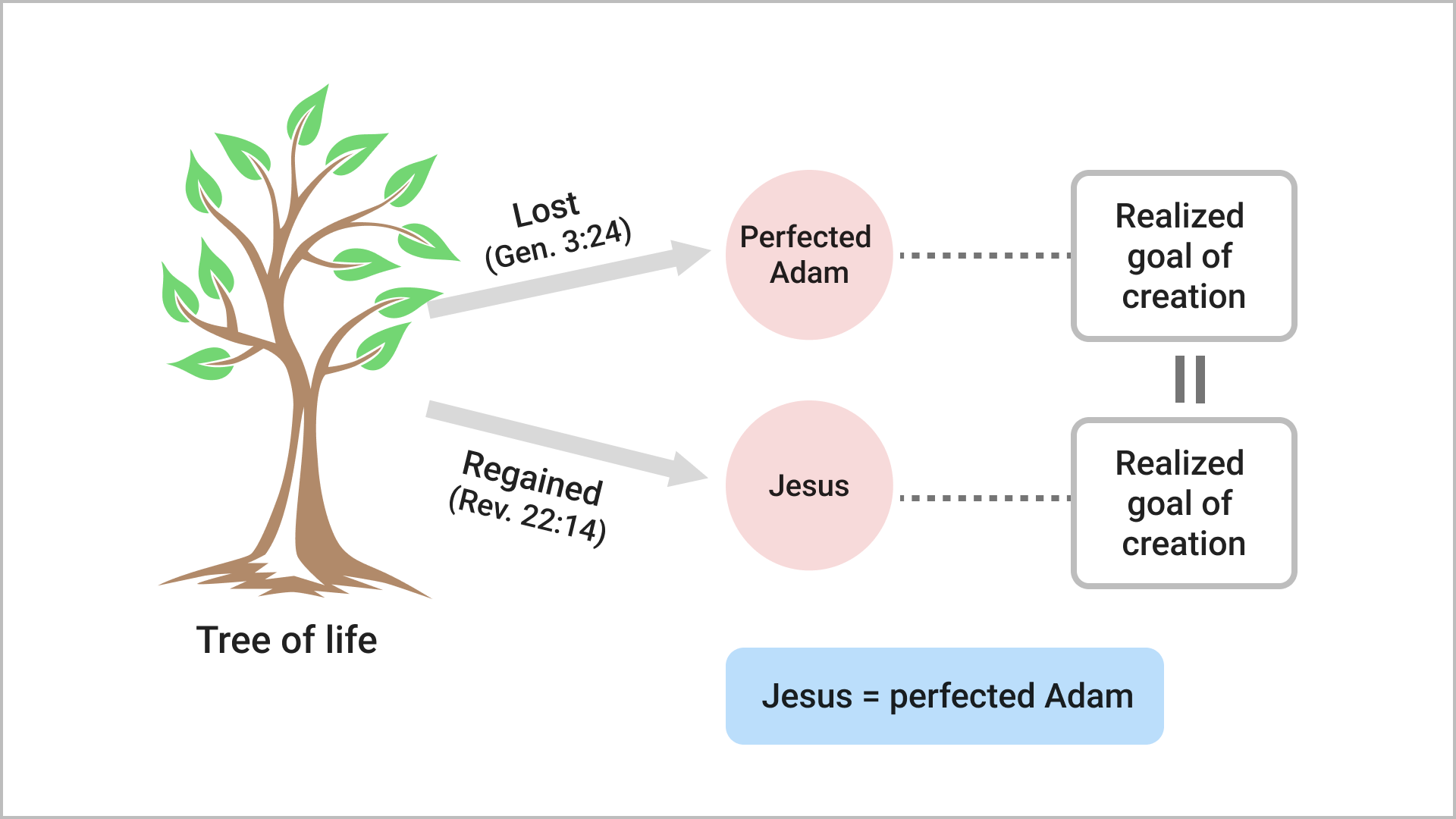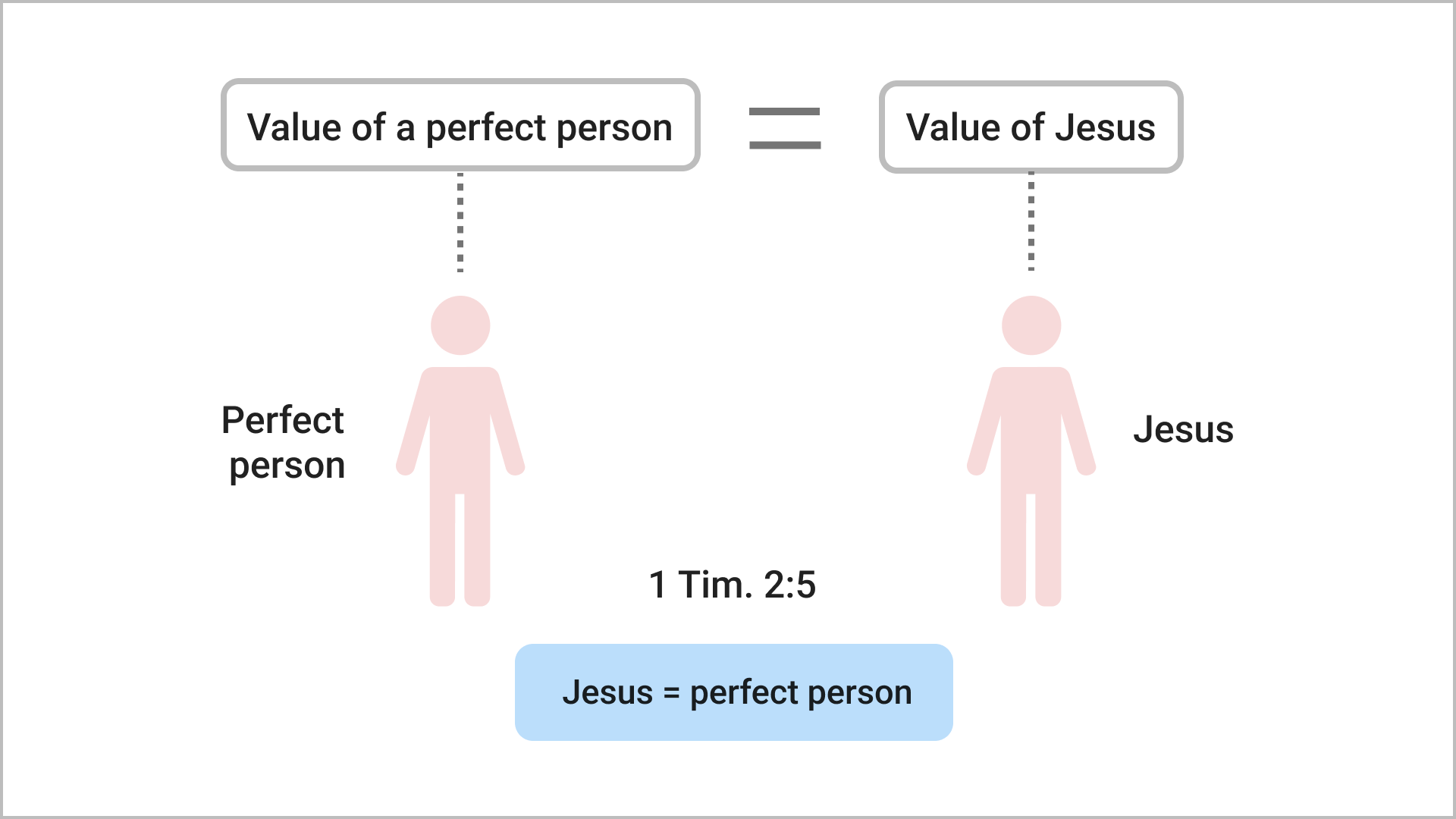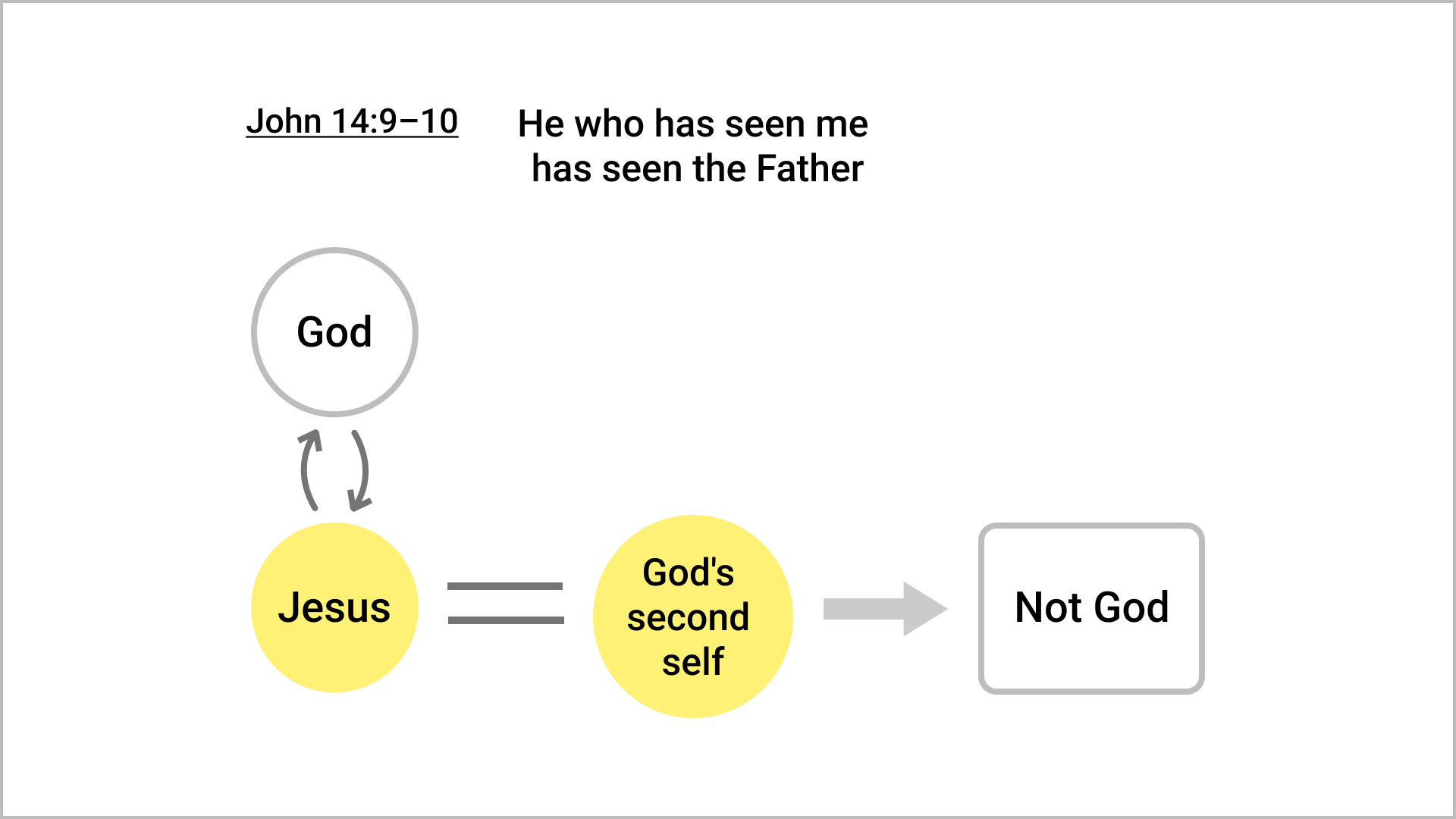Section 2. Jesus and the Person Who Has Realized the Purpose of Creation
Ⅰ. 생명나무 복귀로 본 완성한 아담과 예수님
2.1 Perfected Adam, Jesus and the Restoration of the Tree of Life
인류역사는 에덴동산에서 잃어버렸던 생명나무(창 3 : 24)를 역사의 종말의 세계에서 복귀하여(계 22 : 14) 지상천국(地上天國)을 이루려는 복귀섭리(復歸攝理)의 역사인 것이다. 우리는 에덴동산의 생명나무(창 2 : 9)와 종말의 세계에서 복귀되어질 생명나무(계 22 : 14)가 어떠한 관계를 가지고 있는가 하는 것을 앎으로써, 완성한 아담과 예수님과의 관계를 알 수 있게 되는 것이다.
Human history is the history of the providence of restoration. Its goal is the realization of the Kingdom of Heaven on earth when, at the end of history, the tree of life which was lost in the Garden of Eden will be regained (Rev. 22:14); (Gen. 3:24). We can understand the relation between perfect Adam and Jesus by comparing the tree of life in the Garden of Eden with the tree of life to be restored in the Last Days.
타락론(墮落論)에서 이미 상론(詳論)한 바이지만, 아담이 창조이상(創造理想)을 완성한 남성이 되었더라면 그가 바로 창세기 2장 9절의 생명나무가 되어, 그의 후손도 모두 생명나무가 되었을 것이었다. 그러나 아담이 타락하여 이 ‘뜻’이 이루어지지 않았기 때문에(창 3 : 24), 타락인간의 소망은 바로 이 생명나무로 복귀되는 데 있었다(잠 13 : 12, 계 22 : 14). 그런데 타락된 인간은 그 자신의 힘으로써는 도저히 생명나무로 복귀할 수 없기 때문에, 여기에 반드시 창조이상을 완성한 한 남성이 생명나무로 오셔 가지고 만민으로 하여금 그에게 접붙임을 받도록 해야만 되는 것이다.
As was discussed earlier (cf. Fall 1.1.1), had Adam fully realized the ideal of creation, he would have become the tree of life and likewise all his descendants would have become trees of life. However, Adam’s fall frustrated God’s Will, and ever since, fallen humankind has hoped to be restored as trees of life (Prov. 13:12); (Rev. 22:14). Since a fallen person can never fully restore himself as a tree of life by his own efforts, a man who has completed the ideal of creation must come as the tree of life and engraft all people with himself.
이러한 남성으로 오실 분이 바로 요한계시록 22장 14절에 생명나무로 표상(表象)되어 있는 예수님이시다. 그러므로 에덴동산의 생명나무로 상징되어 있는 완성한 아담이나 요한계시록 22장 14절에 생명나무로 비유된 예수님은, 창조이상(創造理想)을 완성한 남성이라는 견지에서는 서로 다를 것이 없다는 것을 우리는 알 수 있다. 따라서 창조본연(創造本然)의 가치에 있어서도 그 사이에 아무런 차이가 있을 수 없는 것이다.
Jesus is this tree of life portrayed in the Bible. Adam, had he realized the ideal of perfection symbolized by the tree of life in the Garden of Eden, and Jesus, symbolized by the tree of life in the Book of Revelation, would be identical in the sense of having realized the goal of creation. As such, they would have equal value.

Ⅱ. 창조목적의 완성으로 본 인간과 예수님
2.2 Jesus, Human Beings and the Fulfillment of the Purpose of Creation
우리는 이미 본장 제1절에서 완성한 인간의 가치가 어떠한 것인가 하는 것을 설명하였다. 그러면 우리는 여기에서 완성한 인간과 예수님과는 어떠한 차이가 있는가 하는 점을 고찰해 보기로 하자.
Let us compare the value of Jesus with that of a person of perfect individual character.
우리가 상술(上述)한 바에 의하여 아는 바와 같이, 완성한 인간은 창조목적(創造目的)을 두고 보면 하나님의 온전하심과 같이 온전하여서(마 5 : 48), 하하나님과 같은 신성(神性)을 가진 가치적인 존재인 것이다. 그리고 하나님이 영원하신 분이기 때문에, 그의 실체대상(實體對象)으로 지음받은 인간도 역시 완성되면 영원한 존재가 아닐 수 없다. 그 위에 완성한 인간은 유일무이(唯一無二)한 존재이며 전피조세계(全被造世界)의 주인이기 때문에, 그가 없이는 천주(天宙)의 존재가치도 온전해질 수 없는 것이다. 따라서 인간은 천주적인 가치의 존재인 것이다.
With respect to the purpose of creation, a fully mature person is perfect as God is perfect (Matt. 5:48). Having the same divine nature as God, he is infinitely precious. Since God is an eternal being, a person created to become His incarnate object partner in perfection must have an eternal life.A fully mature person is unique in all the cosmos. Furthermore, since he is the lord of the entire natural world, which cannot realize its full value without him, he possesses the value of the cosmos.
예수님은 바로 이러한 가치를 가지고 계신 분이시다. 예수님이 지니신 가치가 아무리 크다 할지라도, 위에서 열거한 바와 같은 창조이상을 완성한 남성이 지니는 가치 이상의 것을 가질 수는 없는 것이다. 그러므로 예수님은 어디까지나 창조목적을 완성한 인간으로 오신 분이심을 우리는 부인할 수 없다.
There is no greater value than that of a person who has realized the ideal of creation. This is the value of Jesus, who surely attained the highest imaginable value.
원리(原理)는 이제까지 많은 신도들이 믿어 온 바, 예수님을 하나님이라고 믿는 신앙에 대하여 이의(異議)를 갖지 않는다. 왜 그러냐 하면 완성한 인간은 하나님과 일체임이 사실이기 때문이다. 또 원리가 예수님을 말하여 그는 창조목적을 완성한 하나의 인간이라고 주장한다고 해서 그의 가치를 추호도 격하(格下)하는 것은 아니다. 다만 창조원리(創造原理)는 완성된 창조본연의 인간의 가치를 예수님의 가치와 동등한 입장으로 끌어올리는 것뿐이다.
The conventional Christian belief in Jesus’ divinity is well founded because, as a perfect human being, Jesus is totally one with God. To assert that Jesus is none other than a man who has completed the purpose of creation does not degrade the value of Jesus in the least. In fact, the Principle of Creation elevates the true value of all people who fulfill the purpose of creation to a level comparable to Jesus.
우리는 위에서 예수님은 어디까지나 창조목적(創造目的)을 완성한 인간이라는 것을 논술하였다. 그러면 이제 이것을 입증할 수 있는 성서적 근거를 찾아보기로 하자.
Let us now examine some biblical evidence supporting the position that Jesus is a man who has fulfilled the purpose of creation. It is written:
디모데전서 2장 5절에는 하나님은 한 분이시요 또 하나님과 사람 사이에 중보도 한 분 이시니 곧 사람이신 그리스도 예수라고 기록되어 있고, 또 로마서 5장 19절에는 한 사람(아담)의 순종치 아니함으로 많은 사람이 죄인 된 것같이 한 사람(예수님)의 순종하심으로 많은 사람이 의인이 되리라고 기록되어 있으며, 또 고린도전서 15장 21절에는 사망이 사람(아담)으로 말미암았으니 죽은 자의 부활도 사람(예수님)으로 말미암는도다라고 표명되어 있는 것이다. 그리고 사도행전 17장 31절에는 이는 정하신 사람으로 하여금 천하를 공의로 심판할 날을 작정하시고라고 하였고, 누가복음 17장 26절에는 노아의 때에 된 것과 같이 인자의 때에도 그러하리라고 말씀하셨다. 이와 같이 성서는 어디까지나 예수님은 인간이시라는 것을 명시하고 있다. 더욱이 그는 인류를 중생(重生)하여 주실 참부모로 오시는 분이기 때문에 사람으로 오시지 않으면 아니 되는 것이다.
For there is one God, and there is one mediator between God and men, the man Christ Jesus (I Tim. 2:5). For as by one man’s [Adam’s] disobedience many were made sinners, so by one man’s [Jesus’] obedience many will be made righteous (Rom. 5:19). For as by a man [Adam] came death, by a man [Jesus] has come also the resurrection of the dead (I Cor. 15:21). He has fixed a day on which he will judge the world in righteousness by a man whom he has appointed (Acts 17:31). Thus, the Bible demonstrates plainly that Jesus is a man. Above all, he had to come as a human being that he might become the True Parent who can give rebirth to human beings.

Ⅲ. 예수님는 하나님 자신이신가
2.3 Is Jesus God Himself?
빌립이 예수님에게 하나님을 보여 달라고 하였을 때, 예수님은 빌립에게 나를 본 자는 아버지를 보았거늘 어찌하여 아버지를 보이라 하느냐 나는 아버지 안에 있고 아버지는 내 안에 계신 것을 네가 믿지 아니하느냐(요 14 : 9∼10)라고 대답하셨다. 또 성경의 다른 곳에 세상은 그(예수님)로 말미암아 지은 바 되었으되 세상이 그를 알지 못하였고(요 1 : 10)라고 한 말씀도 있고, 또 아브라함이 나기 전부터 내(예수님)가 있느니라(요 8 : 58)고도 기록되어 있다. 이러한 성구 등을 근거로 하여서 이제까지의 많은 신앙인들은 예수님을 창조주(創造主) 하나님으로 알고 있었던 것이다.
When Philip asked Jesus to show him God, Jesus said, “He who has seen me has seen the Father; how can you say, ‘Show us the Father?’ Do you not believe that I am in the Father and the Father in me?” (John 14:9-10). It is written of Jesus, “He was in the world, and the world was made through him, yet the world knew him not” (John 1:10). Jesus also said, “Truly, truly, I say to you, before Abraham was, I am” (John 8:58). Based on these biblical verses, many Christians have believed that Jesus is God, the Creator.
위에서 논증한 바와 같이, 예수님은 창조목적(創造目的)을 완성한 인간으로서 하나님과 일체이시기 때문에 그의 신성(神性)으로 보아 그를 하나님이라고 할 수도 있다. 그러나 그는 어디까지나 하나님 자신이 될 수는 없는 것이다. 하나님과 예수님과의 관계는 마음과 몸과의 관계로 비유하여 생각할 수 있다. 몸은 마음을 닮아 난 실체대상(實體對象)으로서 마음과 일체를 이루고 있기 때문에 제2의 마음이라고는 할 수 있을망정, 몸이 마음 그 자체는 아닌 것이다. 이와 마찬가지로 예수님도 하나님과 일체를 이루고 있기 때문에 제2의 하나님이라고 할 수는 있으나 하나님 자신이 될 수는 없는 것이다. 그 때문에 요한복음 14장 9절 내지 10절의 말씀대로 그를 본 것은 곧 하나님을 본 것이 되는 것도 사실이지만, 이 말씀은 예수님이 곧 하나님이시라는 뜻에서 하신 것은 아니다.
Jesus may well be called God because, as a man who has realized the purpose of creation and who lives in oneness with God, he has a divine nature. Nevertheless, he is not God Himself. The relationship between God and Jesus may be thought of as analogous to the relationship between the mind and body. Because the body is the substantial object partner to the mind, resembles the mind and acts in oneness with the mind, it may be understood to be the mind’s second self; but it is not the mind itself. By analogy, since Jesus is one with God and the incarnation of God, he may be understood to be God’s second self; but he is not God. It is true that he who has seen Jesus may be said to have seen God (John 14:9-10), but Jesus did not mean by saying this that he was God Himself.

요한복음 1장 14절에는 예수님을 말하여 말씀이 육신을 이루신 분이라고 하였다. 이것은 예수님이 말씀의 실체로서 도성인신(道成人身)하신 분이라고 하는 것을 의미하는 것이다. 그런데 요한복음 1장 3절을 보면 만물세계는 말씀으로 창조되었다고 기록되어 있고, 나아가 요한복음 1장 10절에는 이 세상이 예수님으로 말미암아 창조된 것으로 기록되어 있기 때문에, 결국 예수님을 창조주(創造主)라고도 볼 수 있게 되어 있는 것이다.
The Bible refers to Jesus as the Word made flesh (John 1:14). This verse means that Jesus is the incarnation of the Word; that is, a man in whom the Word comes alive. We read that all things were made through the Word, and further, that the world was made through Jesus (John 1:3, 10). Hence, Jesus may be said to be the creator.
그런데 창조원리에 의하면, 피조세계(被造世界)는 개성을 완성한 인간의 성상(性相)과 형상(形狀)을 실체로 전개한 것이기 때문에, 창조목적을 완성한 인간은 피조세계를 총합한 실체상(實體相)이요, 또한 그의 화동(和動)의 중심이라고 하였다. 그러므로 이러한 의미에서 이 세상은 완성한 인간으로 말미암아 창조되었다고도 할 수 있는 것이다. 또 하나님은 인간이 그 자신의 책임분담(責任分擔)을 다하여 완성되면 그 인간에게 하나님의 창조성을 부여하시어 그로 하여금 만물세계에 대한 창조주의 입장에 설 수 있도록 해 주시고자 하셨던 것이었다. 이러한 각도에서 볼 때, 요한복음 1장 10절의 기록은 어디까지나 예수님은 창조목적을 완성한 인간이라는 사실을 밝힌 것뿐이요, 그가 곧 창조주 자신임을 의미한 것은 아니라는 사실을 우리는 알 수 있는 것이다.
To understand what these verses mean, consider that the universe according to the Principle of Creation is the substantial unfolding of the internal nature and external form of a human being of perfected character. All the elements of the universe are encapsulated in a fully mature person and resonate in harmony around him. In this sense, it can be said that the universe is created through a perfect human being. Furthermore, God intended that human beings be the creators and lords of the natural world by endowing them with the character and powers of the Creator; these are to be realized once they reach perfection through the fulfillment of their responsibility. Seen from this perspective, these verses are in agreement with our understanding of Jesus as the man who has completed the purpose of creation; they do not signify that Jesus is the Creator Himself.
예수님은 혈통적으로 보면 아브라함의 후손이지만, 그는 전인류를 중생(重生)하여 주실 인간 조상으로 오셨기 때문에 복귀섭리(復歸攝理)의 입장에서 본다면 아브라함의 선조가 된다. 그렇기 때문에 요한복음 8장 58절에 예수님은 아브라함이 나기 전부터 계셨다고 기록되어 있는 것이다. 따라서 이 말씀도 예수님이 하나님 자신이라는 의미에서 기록된 것이 아니라는 사실을 우리는 깨달아야 할 것이다.
Jesus also said, “Before Abraham was, I am” (John 8:58). Jesus was the descendant of Abraham. Yet with respect to the providence of restoration, Jesus is the ancestor of Abraham because, as the one to give rebirth to all humankind, he came in the position of their first ancestor. We should understand that Jesus did not mean by this saying that he is God Himself.
예수님은 지상에 있어서도 원죄(原罪)가 없다는 점을 제외한다면 그는 우리와 조금도 다름이 없는 인간이었고, 또 부활 후 영계에 있어서도 제자들과 다름없이 영인체로서 계신다. 다만 제자들은 생명체급(生命體級)의 영인으로서 빛의 반사체(反射體)로 있는 데 비하여, 예수님은 생령체급(生靈體級)의 영인으로서 찬란한 빛을 발하는 발광체(發光體)로 계시는 것이 다른 점이라 하겠다.
While on earth, Jesus was a man no different from any of us except for the fact that he was without the original sin. Even in the spirit world, where he has abided since his resurrection, Jesus lives as a spirit, as do his disciples. The only difference between them is that Jesus abides as a divine spirit, emitting brilliant rays of light, while his disciples, as life spirits, reflect that light.
한편 또 예수님은 부활 후에도 영계에서 지상에 계실 때와 마찬가지로 하나님에게 기도를 하고 계신다(롬 8 : 34). 만일 예수님이 하나님 자신이라면 자신에게 어떻게 기도할 수 있겠는가? 이 문제에 있어서는 예수님도 하나님을 아버지라 부르시어 스스로 하나님이 아니심을 밝히고 있는 것이다(마 27 : 46, 요 17 : 1).
It is written that since his resurrection, Jesus has been interceding for us before God (Rom. 8:34) as he did while he was on earth (Luke 23:34). If Jesus were God, how could he intercede for us before Himself? Moreover, Jesus called God “Father,” thus acknowledging that he was not God Himself (John 17:1).
만일 예수님이 하나님 자신이라면, 어떻게 하나님이 사탄의 시험을 받고 또 사탄에 몰려 십자가에 달리는 등의 일이 있을 수 있을 것인가? 그리고 또 예수님이 십자가상(十字架上)에서 나의 하나님 나의 하나님 어찌하여 나를 버리셨나이까(마 27 : 46)라고 하신 말씀을 보더라도 예수님이 하나님 자신이 아님은 분명한 것이다.
If Jesus were God, how could He be tempted by Satan, as Jesus was? We can conclude with finality that Jesus was not God Himself from the words he uttered on the cross, “My God, my God, why hast thou forsaken me?” (Matt. 27:46).